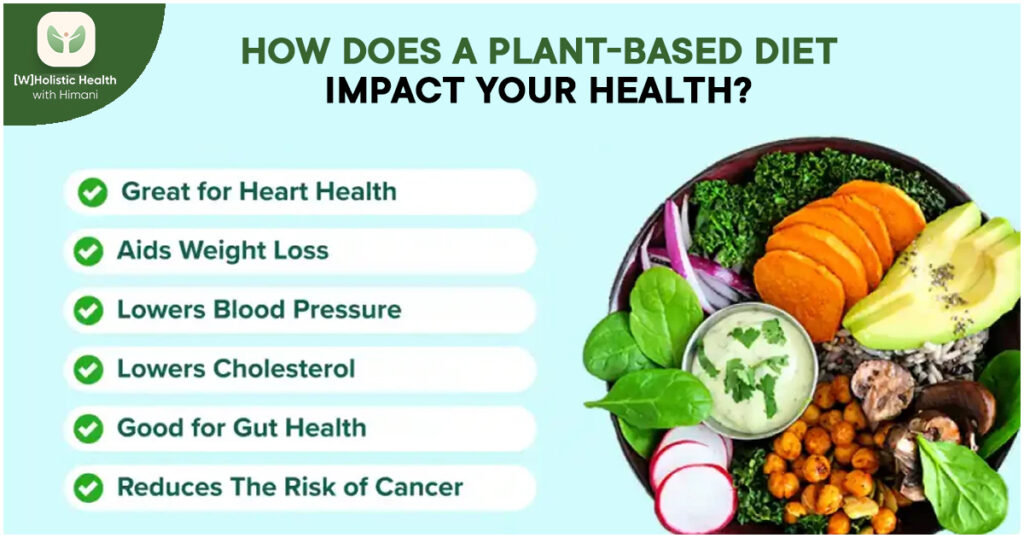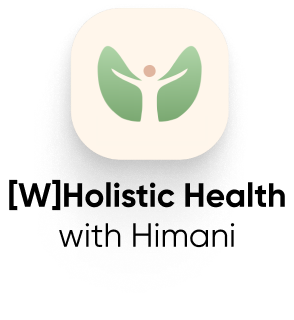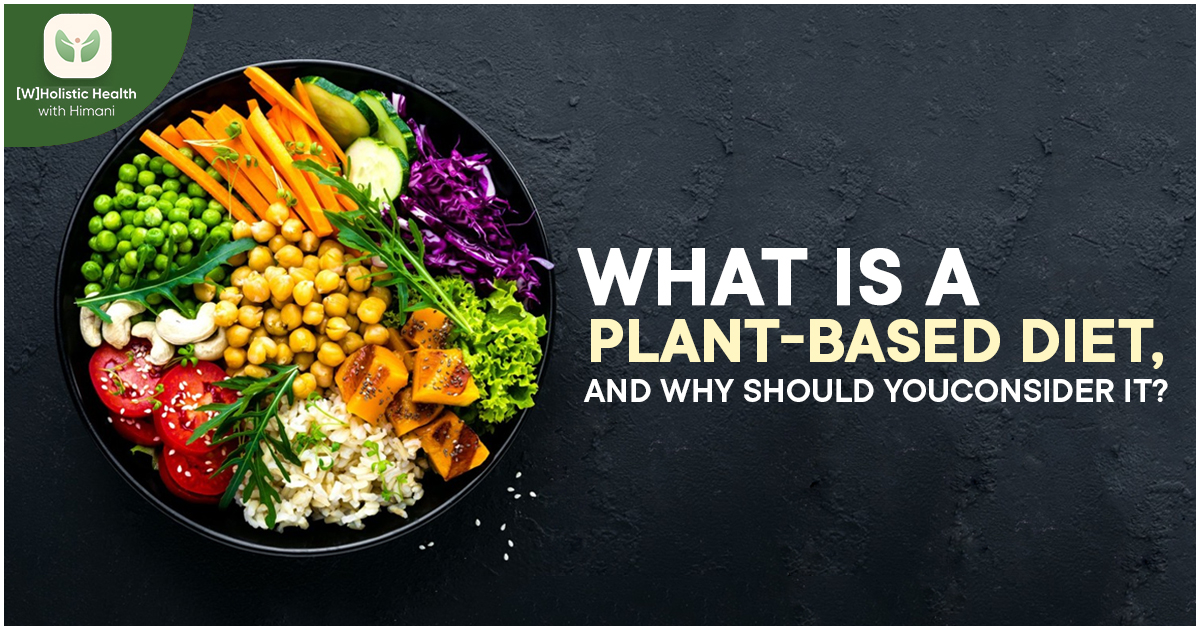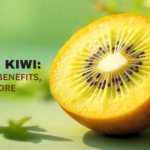Plant-based diets have recently become popular, driven by health awareness, environmental concerns, and ethical motivations. A 2023 Gallup survey shows that 10% of Americans now follow some form of plant-based eating—a significant increase from just 5% in 2018. These diets focus on foods sourced from plants while reducing or eliminating animal products. Whether you aim to improve your health, lower your carbon footprint, or explore ethical eating, plant-based diets offer diverse options suited to individual goals.
Table of Contents
ToggleNutritional Benefits of Plant-Based Diets
Plant-based diets offer a powerhouse of nutrients, often surpassing traditional Western diets in key areas. The National Cancer Institute (2023) revealed that these diets contain 64% more antioxidants, which combat cellular damage and oxidative stress. Higher fiber intake—on average, 31 grams more daily than omnivorous diets—fosters improved digestion and reduced inflammation.
Read More: The Complete Guide to Holistic Health Coaching
Moreover, research from the University of California, Davis, highlights significant metabolic advantages. Increased fiber correlates with 30% better insulin sensitivity and 22% lower cholesterol levels. These effects collectively reduce the risk of chronic illnesses like diabetes, heart disease, and cancer, underscoring the role of plant-based eating in longevity and wellness.
What is a Plant-Based Diet?
Plant-based diets focus on foods primarily derived from plants, including fruits, vegetables, whole grains, legumes, nuts, and seeds, while reducing or entirely excluding animal products. Their growing popularity reflects a blend of health-consciousness, environmental responsibility, and ethical considerations.
A 2023 Gallup survey reported that 10% of Americans follow plant-based eating patterns, double the figure from 2018. This rise stems from diverse motivations, including improved health, lower carbon footprints, and reduced reliance on animal agriculture.
Variations of Plant-Based Diets
Plant-based diets span a spectrum:
- Vegan Diets: Exclude all animal-derived products, including dairy, eggs, and honey.
- Vegetarian Diets: Allow for eggs and dairy but exclude meat and fish.
- Flexitarian Diets: Primarily plant-focused but include occasional animal products for flexibility.
Harvard T.H. Chan School of Public Health’s 2023 report noted that 41% of Americans have experimented with plant-based meat alternatives, reflecting an increased openness to plant-centric eating patterns.

How Does a Plant-Based Diet Impact Your Health?
The health benefits of plant-based diets are backed by robust scientific research.
- Heart Health:
A 2022 Journal of the American Heart Association meta-analysis involving 400,000 participants showed that plant-based diets reduce heart disease risk by 32%. Key cardiovascular benefits include:- Lower blood pressure
- Improved cholesterol levels
- Enhanced arterial function
- Chronic Disease Prevention:
- Type 2 Diabetes: Individuals on plant-based diets experience a 25% reduced risk compared to traditional Western diets.
- Cancer: Higher plant-based food intake is linked to a 15% lower risk for specific cancers, particularly colorectal and breast cancers.
- Stroke: Regular adherence to plant-based eating reduces stroke risk by 16%.
These findings highlight the profound impact of plant-based diets on long-term health outcomes.
Read More: How Can You Live a Heart-Healthy Life? A Science-Based Guide
Nutritional Advantages of Plant-Based Diets
A well-planned plant-based diet delivers essential nutrients, often surpassing traditional diets in several areas.
- Antioxidants: Plant-based diets offer 64% more antioxidants than Western diets, protecting against cellular damage and chronic inflammation (National Cancer Institute, 2023).
- Fiber: Higher fiber consumption (an additional 31 grams daily) improves digestion, reduces inflammation, and promotes gut health.
- Metabolic Health: Research from UC Davis indicates that plant-based eaters show:
- 30% better insulin sensitivity
- 22% lower cholesterol levels
- 28% reduced inflammation markers
These benefits contribute to improved energy, disease prevention, and longevity.
How to Balance Macronutrients in a Plant-Based Diet
Achieving optimal macronutrient balance is key to sustained health. The American Dietetic Association suggests this distribution:
- 50-60% Complex Carbohydrates: Whole grains, starchy vegetables, and legumes
- 25-30% Healthy Fats: Avocados, nuts, seeds, and olive oil
- 15-20% Plant Protein: Tofu, tempeh, lentils, and chickpeas
This balance ensures stable energy levels, muscle maintenance, and long-lasting satiety.
Optimal Meal Combinations for Plant-Based Diets
Strategic meal combinations enhance nutrient absorption and overall health benefits. Stanford University recommends these practical pairings:
- Breakfast: Oats + nuts + berries = 15g protein, 12g fiber
- Lunch: Grain bowl + legumes = 22g protein, 16g fiber
- Dinner: Stir-fried vegetables + tofu = 24g protein, 14g fiber
These combinations ensure a diverse nutrient profile while satisfying taste and texture preferences.
Addressing Potential Nutrient Deficiencies
Plant-based diets require attention to specific nutrients to avoid deficiencies.
Read More: Food Allergies and Intolerances: What You Need to Know
Common Deficiency Risks
According to Mayo Clinic research, the primary risks include:
- Vitamin B12: Affects 43% of unsupplemented vegans
- Iron: Deficiency occurs in 34% of new plant-based dieters
- Zinc: Levels are 21% lower without adequate planning
Effective Supplementation Strategies
Tufts University Medical Center advises:
- Vitamin B12: 2.4μg daily supplement
- Vitamin D: 1,000–2,000 IU daily
- Omega-3: 200–300mg DHA/EPA from algae-based supplements
Careful supplementation ensures complete nutritional adequacy.
How to Meet Your Nutritional Needs on a Plant-Based Diet
Strategic food choices maximize nutrient intake:
- Protein: Combining legumes (e.g., chickpeas) with grains (e.g., quinoa) achieves 98% protein absorption, comparable to animal sources (Oxford University, 2023). Soy products, like tofu and tempeh, consistently deliver 12–20 grams of complete protein per serving.
- Micronutrients:
- Dark leafy greens (e.g., spinach) provide 4.5mg of iron per cup.
- Nutritional yeast offers 8.3μg of vitamin B12 per tablespoon.
- Fortified plant milk delivers 300mg calcium per cup, matching dairy.
Thoughtful meal planning ensures well-rounded nutrition.
Environmental Impact of Plant-Based Diets
Plant-based eating offers profound environmental benefits.
- Lower Carbon Emissions: Oxford University’s Environmental Change Institute reports a 73% reduction in carbon emissions for plant-based diets compared to traditional ones.
- Water and Land Use: Transitioning to plant-based eating saves 1,100 gallons of water daily and requires 76% less land.
The World Resources Institute emphasizes the efficiency of plant food production, showing one acre can yield 37,000 pounds of plant food versus just 375 pounds of meat.
Mental Health Benefits of Plant-Based Diets
Plant-based diets significantly impact mental well-being.
- Reduced Risk of Depression and Anxiety: The British Journal of Nutrition reports a 32% reduction in depression risk and a 41% decrease in anxiety levels among plant-based eaters.
- Improved Mood and Cognitive Function: UCLA’s Department of Psychiatry found that reduced inflammation (44%), improved gut-brain axis function (35%), and enhanced neurotransmitter production (29%) contribute to better mental health outcomes.
Conclusion
Plant-based diets provide a scientifically validated path to improved health and environmental sustainability. With careful planning and thoughtful execution, individuals can meet all nutritional needs while supporting the planet. Whether you’re exploring plant-based eating for health, ethics, or ecological reasons, the benefits make it a compelling choice for individuals and families.

I’m Himani, a Singapore-based health coach certified by IIN. I help clients create personalized nutrition and lifestyle plans that lead to lasting health goals. By focusing on individual needs, I provide actionable steps to support your journey to optimal well-being











